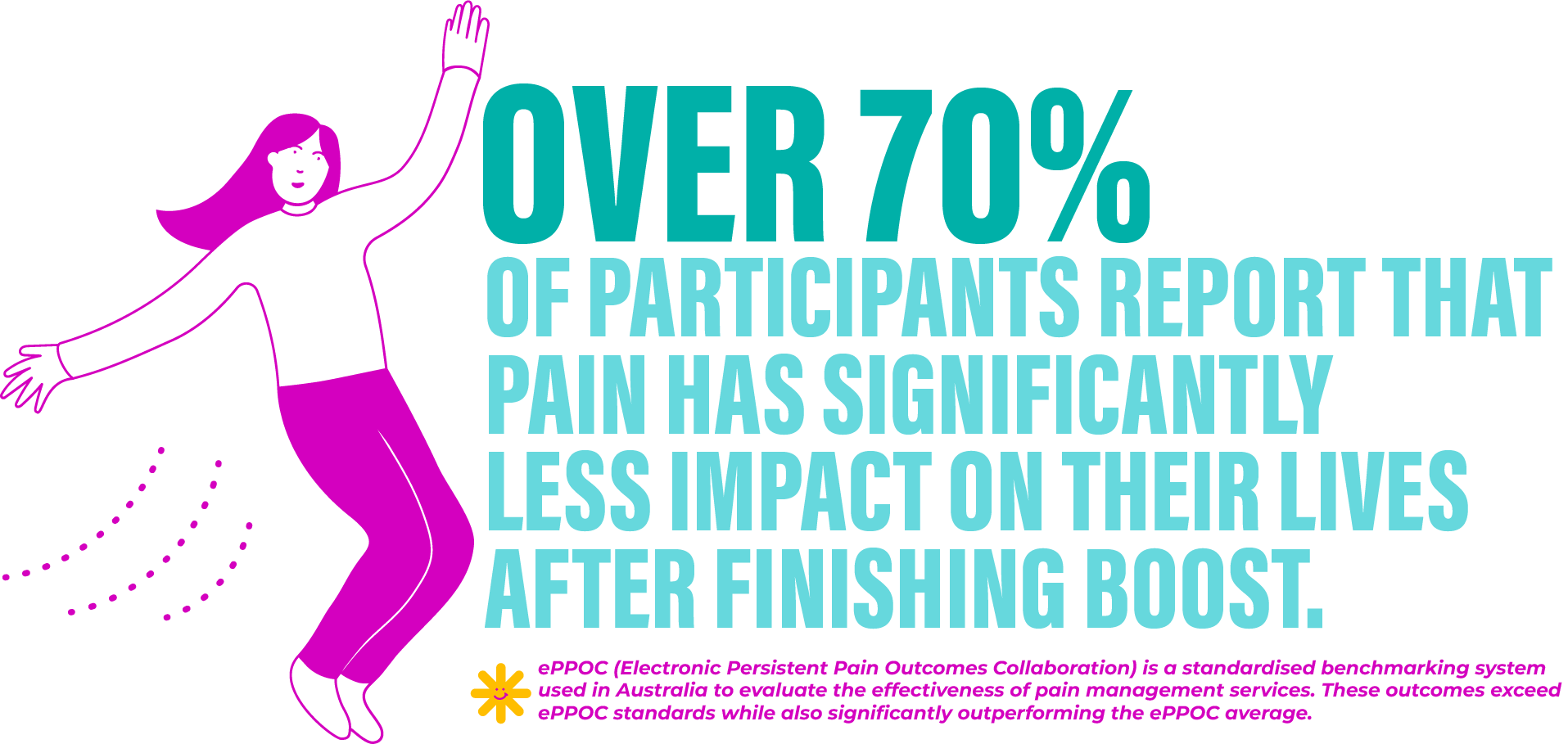BOOST Recovery is an award-winning virtual care clinical program supporting self-management of pain recovery using evidence-based approaches. Your injured employee will work with an expert pain-informed Allied Health Pain Coach to co-design a goal-oriented care plan. BOOST provides people with the guidance, skills, training and encouragement needed to put their care plan into practice.
BOOST Recovery is an award-winning virtual care clinical program supporting self-management of pain recovery using evidence-based approaches. Your injured employee will work with an expert pain-informed Allied Health Pain Coach to co-design a goal-oriented care plan. BOOST provides people with the guidance, skills, training and encouragement needed to put their care plan into practice.
BOOST Health Labs’ targeted focus on assisting people through their pain journey is grounded in rigorous science, from our evidence-based methods to data-driven decisions about care planning and delivery.
Outcomes and benefits to the patient upon completion of BOOST include, but are not limited to:
We have worked extensively with insurers across Australia. If your employee is covered by a compensable claim, BOOST can help!
BOOST Recovery is approved for referral by Worker's Compensation and CTP Insurers in ACT, NT, WA, NSW and Tasmania. BOOST is suitable as a stand-alone referral for patients in rural and regional areas without access to clinical services.
BOOST Health Labs also offers pain recovery pathways for non-compensable clients. Self-paying clients can find out more by visiting the For People in Pain section of our website.

